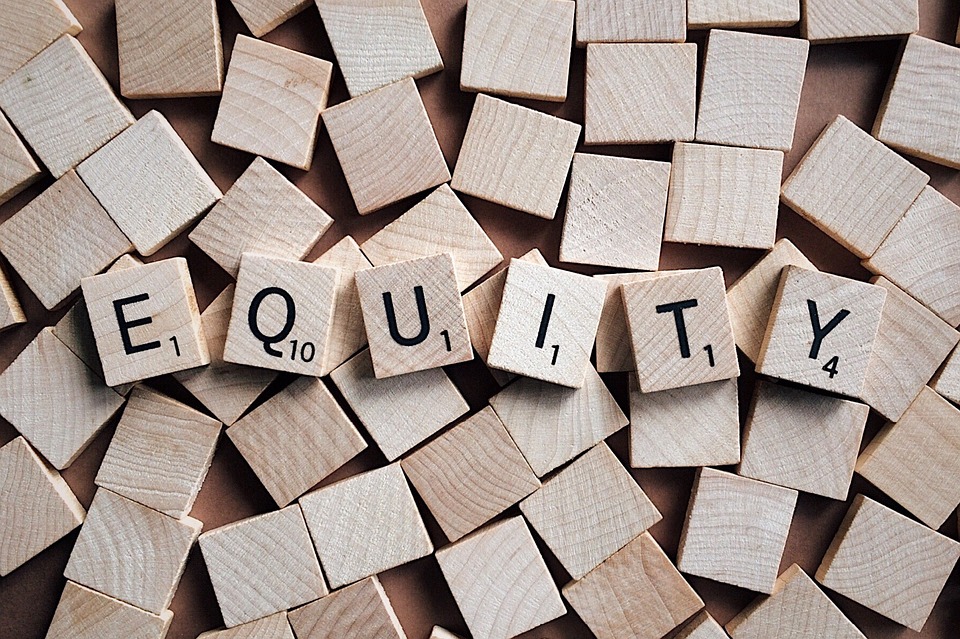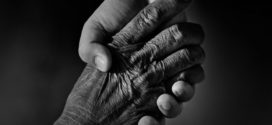I’m the first Puerto Rican to have been admitted to the Delaware bar. Sans one Russian woman born in Cuba due to her family’s refugee status, I was the first Latina lawyer in the state of Delaware. That was back in 1980. I had been a lawyer only two years working in Boston when I moved to Delaware to be with the ‘love of my life’ – lasted all of eleven years. My admission to the Massachusetts bar was uneventful, so I figured Delaware wouldn’t be much different. I was wrong.
The Delaware lawyers’ vetting process was nothing I’d ever envisioned, experienced, or imagined. The process was meant to be arduous for everyone but particularly intended to humiliate the likes of me and my ilk. I was born in the South Bronx and raised first in Harlem, then in the brand-new Van Dyke housing projects of Brownsville in Brooklyn – a step up from a two-room tenement with a hallway bathroom shared with the neighbors on the same floor. My mother toiled in a sweatshop and my father barely earned a living as a janitor. The only lawyers my family knew was an older white Jewish man who obtained my parent’s divorce and then later when my mother and step-father purchased their first home he handled the closing.
When the opportunity to go to law school on a full ride came through, I took it without any hesitation. My alleluia mother was the first to state that I couldn’t be a lawyer when I told her my plans. Her Pentecostal belief system was based on shame and control, especially of the female. She tried her best, as was her duty, to inculcate and even physically beat me into submission.
“Why not?” I asked, frown on my face, ready set to defend myself as usual.
“No puedes porque no eres hombre, ni tampoco judía.”
My mother’s life experiences had no room to conceive the possibility of her only daughter in a role belonging, in her world, exclusively to men; and white Jewish men at that. I wasn’t any one of those three in any combination. To her, my aspiring to be a lawyer was as far-fetched as a rat chasing cheese on the moon. Her way to ‘protect’ me was to shame my brown skin, my femaleness, and my “wandering away” from the alleluia path.
I graduated; the only Latina in my class and the third in the law school history. By graduation, my mother believed me. She would introduce me as, su hija, la abogado – her daughter, the lawyer. But then, she’d come visit me and make acidic shaming remarks like, “Estas viviendo como las ricas.”
I had no trouble finding a social justice job in Delaware because Legal Aid had been looking for a bilingual, bicultural attorney for several years. I was offered a staff attorney position, above scale and with great benefits, at my first interview with the Executive Director, an old hippie type, and the managing attorney, the first African-American woman admitted to the Delaware bar. They said they would assist me through the vetting process. Of course, at the time, I had no idea what I was in for.
The written application to sit for the bar, the permission request to take the exam, was extensive, intentionally complicated, and intimidating. I also had to obtain a preceptor – a Delaware attorney with at least 10 years in practice willing to vouch for me. Besides, not having a clue what a preceptor was, I knew no one. Luckily, the managing attorney set one up for me.
I was the only one of all of that year’s applicants forced to go before a full panel and answer queries about my father’s janitor job and my mother’s factory sewing grind. They probed the “anomaly” that created me, a 27-year-old dyke Latina with an audacity they had never encountered. My application was upsetting their worldview, it seemed. They asked questions intended to embarrass me like whether or not my parents were literate and did I learn English in public schools. Several had haughty attitudes displaying their disdain and their sense of my unworthiness to be a member of their private club. In the end, they knew they had to comply with the law – equal protection, equal rights, and all that. Although they sought any excuse to exclude me from taking the three-day bar exam, they couldn’t legally shut me out. They reluctantly agreed in so many words: Go take the bar. You’ll never pass.
I did pass the Delaware bar, which by the way had a 30% pass rate. I now had the keys to their private club! They did allow me entry but never was I permitted in their inner sanctions. And I was ok with that since I made my own mark on that landscape by growing a successful law practice. I focused on the Latinx community, on LGBT legal protections, and thanks to the Supreme Court’s Shapiro decision (allowing lawyers to advertise and reach clients directly), the second largest Chapter 13 bankruptcy clientele in the state. Since then, I’ve been admitted to the Colorado and New York bars without a hitch.
During the many years in the legal profession, I’ve had to deal with arrogant people, young and old, mostly male and white, who make mistaken assumptions about me just by my looks and their own ignorance. They believe me to be dumb or certainly not as smart as them. They assume I wouldn’t know the rule of law, understand the specific facts of a case, or that I couldn’t apply legal analysis or strategy because brown girls don’t have that capacity, right? They saw me as an unworthy adversary and foolishly prided themselves on their presumption of my incompetence. These attorneys would misidentify my role. I was “the help” never a colleague. With a flick of their manly wrist, they would command me to bring them coffee or take a note or make copies or assume I was present to interpret or record a session. This stereotyping, in my opinion, directly questioned my presence in the legal profession and my capabilities as a lawyer.
Litigation and court appearances in the early years were quite the encounters too. The first time I appeared as a fledgling attorney, the judge lit into me. I was probably one of the first brown-skinned females in his courtroom and he wasn’t having it. He laser streamed the evil eye. He yelled through and at me. He called me a disparaging name – something like ‘lightweight.’ The over-crowded courtroom that had been buzzing in whispered negotiations went silent. I wanted to pee on myself. Instead, I hid behind Brooklyn bravado and faced him unblinkingly eye to eye. I’m from the projects and it’s what we do when we’re terrified. Finally, he gave up the bluster and with the flick of his manly wrist I came to know so well in these guys, ordered me to proceed.
At first, I tried to prove myself to them. That was a waste. What I learned was to use their ignorance to my benefit and for my clients’ best interest. I’d let them spin a storyline, sometimes encouraging them by coming off dumbed down or easily bamboozled, personifying their assumed stereotype of those who look like me. This strategy relaxed their guard and made them overconfident in their ability to ‘win’ the case. In the courtroom, however, it was a different story. I can say that I’ve gotten for my clients our intended outcome the vast majority of the time.
These days Latinxs are about 4% of lawyers in the U.S. That’s a whole lot more than when I was coming up. Today, we have a cadre of Latina lawyers striking a blow, rejecting, not taking on shaming behavior and instead of making tsunami waves in the legal landscape for ourselves and future Latinas lawyers. And, in the highest court of the land, our very own Supreme Court Justice, Sonia Sotomayor, is a clearly competent and very visible Latina lawyer who defies all the stereotypic ignorance so casually applied to us. I am no longer alone or a token representative.
*************************************************************************************************************************************
 NÍVEA CASTRO, J.D., is a writer, photographer, emerita social justice attorney, and retired educator. A three times VONA alum and Cave Canem poetry workshop participant, her poems, essays, and writings have been published in numerous journals and anthologies. She is the curator and editor of a Lambda Literary Awards Finalist Soy Lesbiana y Que! Out Latina Lesbians. Nívea has curated and/or been featured in various venues, including Split This Rock, NYC and Brooklyn Lit Crawl, Listen to Your Mother, a national series of live readings by local writers, Crack the Mic, Soul Sister Revue, BAAD!ASS Women Festival, La Pluma y Tinta, New Voices Reading Series, Canvas of Words, QT: Rainbows Across the Diaspora at Dixon Place, Harlequin Creature, and MICHFEST. She also leads workshops and moderates panel discussions on social justice issues. Nívea is now completing her upcoming fiction novel, Coquito Man, as she has the good fortune of having been accepted into Hedgebrook’s inaugural Master Class in India.
NÍVEA CASTRO, J.D., is a writer, photographer, emerita social justice attorney, and retired educator. A three times VONA alum and Cave Canem poetry workshop participant, her poems, essays, and writings have been published in numerous journals and anthologies. She is the curator and editor of a Lambda Literary Awards Finalist Soy Lesbiana y Que! Out Latina Lesbians. Nívea has curated and/or been featured in various venues, including Split This Rock, NYC and Brooklyn Lit Crawl, Listen to Your Mother, a national series of live readings by local writers, Crack the Mic, Soul Sister Revue, BAAD!ASS Women Festival, La Pluma y Tinta, New Voices Reading Series, Canvas of Words, QT: Rainbows Across the Diaspora at Dixon Place, Harlequin Creature, and MICHFEST. She also leads workshops and moderates panel discussions on social justice issues. Nívea is now completing her upcoming fiction novel, Coquito Man, as she has the good fortune of having been accepted into Hedgebrook’s inaugural Master Class in India.
 Wendy Angulo Productions
Wendy Angulo Productions







